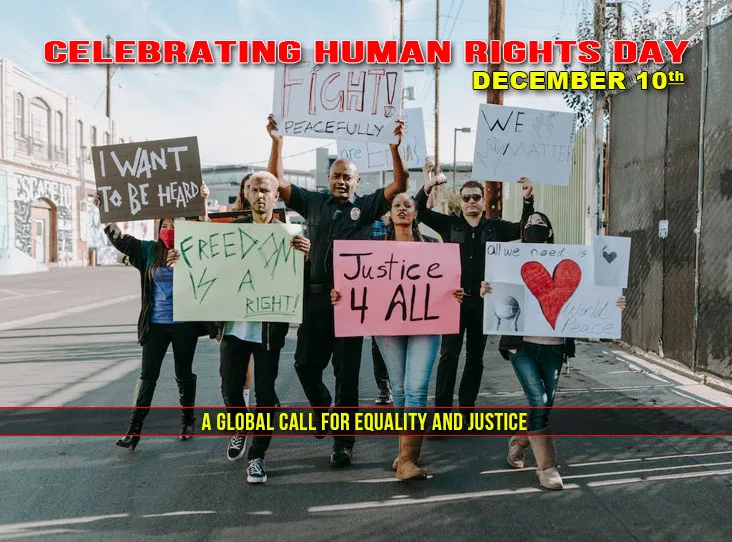Human Rights Day, observed annually on December 10th, marks the anniversary of the adoption of the Universal Declaration of Human Rights (UDHR) in 1948. This significant day serves as a reminder of the inherent dignity and equal rights of all members of the human family. It is a call to action, urging individuals, communities, and nations worldwide to uphold and promote human rights for everyone, irrespective of their background, beliefs, or identity.
Table of Contents
The Universal Declaration of Human Rights:
The Universal Declaration of Human Rights, a foundational document adopted by the United Nations General Assembly, outlines the fundamental rights and freedoms to which all people are entitled. Drafted in the aftermath of World War II, the UDHR aimed to prevent the recurrence of atrocities and establish a common standard of human rights for people everywhere. Its 30 articles cover a wide range of rights, including the right to life, liberty, and security, freedom from torture and slavery, and the right to work and education.
The Themes of Human Rights Day:
Each year, Human Rights Day focuses on a specific theme to address contemporary challenges and promote awareness. Themes have ranged from ending discrimination and promoting inclusion to addressing climate change and advocating for gender equality. The chosen themes reflect the evolving nature of human rights issues and the need for continued efforts to protect and promote these rights for everyone.
Challenges to Human Rights:
While progress has been made in advancing human rights globally, challenges persist. Discrimination, inequality, and injustice continue to affect people in various parts of the world. Human Rights Day provides an opportunity to highlight these challenges, spark conversations, and encourage collective action to address systemic issues.
The Role of Individuals and Communities:
Human Rights Day is not only a time for governments and institutions to reflect on their responsibilities but also a call to action for individuals and communities. Each person has a role to play in promoting human rights in their daily lives, from respecting the rights of others to advocating for justice and equality. Grassroots efforts can contribute significantly to building a more just and inclusive world.
The Importance of Education:
Education is a key tool in promoting human rights awareness and understanding. Schools, universities, and community organizations can play a crucial role in educating individuals about their rights and responsibilities. By fostering a culture of respect for diversity and inclusion, education contributes to the development of societies that uphold the principles of the Universal Declaration of Human Rights.
Conclusion:
Human Rights Day is a moment to reflect on the progress made in the promotion of human rights and to recognize the challenges that still exist. It serves as a global reminder of the shared responsibility to protect and uphold the rights and dignity of every individual. As we celebrate Human Rights Day, let us commit to fostering a world where justice, equality, and respect for human rights are the cornerstones of our societies.
Author
Stay connected for new publications, events, and more.







More Stories
Le pape Léon XIV : un pontife historique qui jette un pont entre les continents et les cultures
What Happens When a Pope Dies
Le Prix de la Liberté : 17 Avril 1825, une Ordonnance Injuste. Déclaration de Macron